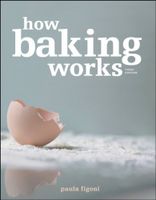Advertisement
2 Exercise: How Sugar Concentration Affects the Boiling point of Water
Appears in
By Paula Figoni
Published 2003
The boiling point of pure water at sea level is 212°F. When sugar—or any substance—is dissolved in water, the boiling point increases above 212°F. This is because sugar molecules take up space, including space near the top of a pot, and gets in the way of water molecules escaping from a pot into the atmosphere. As the concentration of sugar increases (as it does when water evaporates from a sugar syrup), the boiling point also increases.
When sugar syrup is boiled, as when preparing boiled confections, water evaporates off but the sugar remains behind. The boiling point increases as this occurs because the sugar concentration also increases, making it more difficult for water to evaporate. That is why thermometers are used to determine if confections (and jams and jellies) have been boiled long enough to set properly. The thermometer is being used to determine if the correct sugar concentration has been reached.

